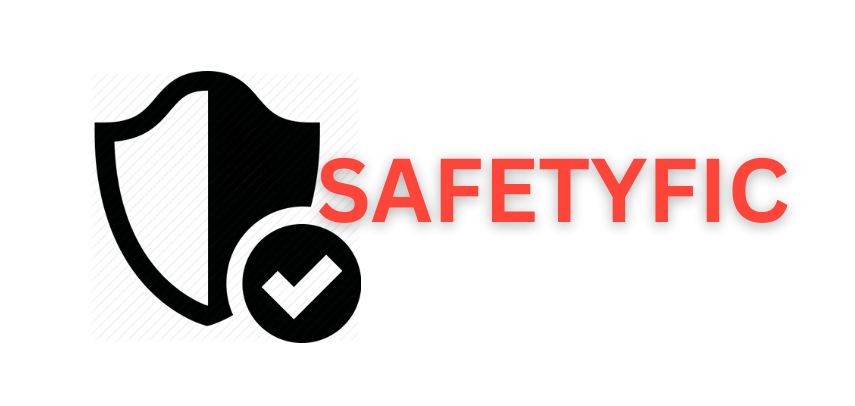As surveillance camera technology advances, more and more businesses and homeowners have access to inexpensive CCTV cameras. But with great power comes great responsibility–namely, the need for security measures that protect these cameras from potential attacks.
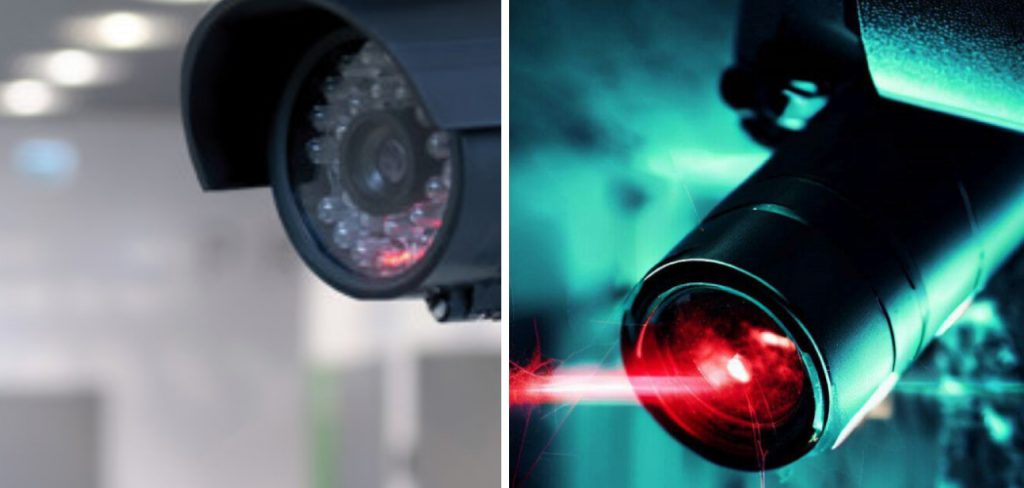
In this post, we’ll explore how lasers can be used to interfere with or disable your surveillance system – and offer advice on how you can safeguard against such an attack.
Through a combination of hardware selection considerations, camera placement strategies, active approaches like light-filtering materials and specialized coatings—and thorough software maintenance tactics—you can significantly reduce your risk of becoming a victim of laser-based sabotage.
Let’s look at what steps on how to protect security cameras from lasers you should take now in order to make sure every aspect of your home security is secure!
Benefits of Protecting Security Cameras with Lasers
First and foremost, protecting your security cameras from lasers can significantly increase the effectiveness and reliability of your surveillance system. When targeted by a laser, a camera’s image sensors can be overloaded or damaged– leaving you without any visual evidence in case of an incident.
By implementing defenses against laser attacks, you can ensure that your cameras continue to function properly and capture any potential threats or suspicious activity.
Additionally, protecting your security cameras from lasers can also save you time and money in the long run. A successful laser attack on your surveillance system may result in expensive repairs or replacements, not to mention the cost of any lost footage that could have served as vital evidence.
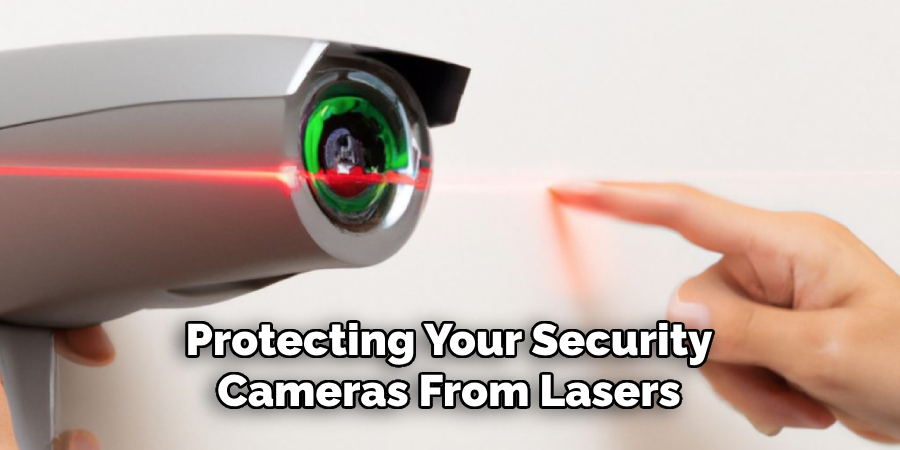
By investing in protective measures upfront, you can avoid these potential losses and expenses.
Needed Materials: Light Filtering Film and Specialized Coatings
Given below are some of the materials you’ll need to implement in order to protect your security cameras from lasers.
Light Filtering Film
Light filtering film, also known as laser protection film, is a thin sheet of material that can be placed over the lens of your security camera. This film helps prevent intense laser beams from reaching and damaging the image sensor of your camera. It works by diffusing or reflecting the laser light, rather than allowing it to pass through and reach sensitive components.
Specialized Coatings
Another option for protecting your security cameras from lasers is by using specialized coatings. These coatings are made with materials that have high refraction indexes, meaning they can deflect or disperse laser beams. They can be applied directly onto the lens of your camera, providing a layer of protection similar to light-filtering film.
11 Step-by-step Guidelines on How to Protect Security Cameras From Lasers
Step 1: Assess the Risk
Before implementing any laser protection measures, it’s important to first assess the level of risk your security cameras may face. Factors such as camera placement (indoor or outdoor), neighborhood crime rates, and potential threats should all be taken into consideration. You may also want to consult with a security expert for a professional assessment.
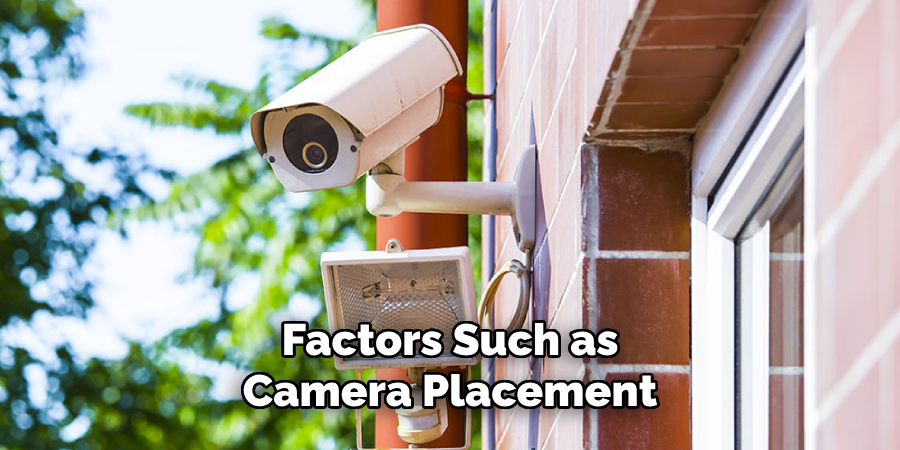
Step 2: Choose the Right Hardware
When selecting security cameras, it’s important to choose models that are designed with durability and resistance in mind. Make sure to look for cameras with features like robust housing and strong lenses that can withstand potential laser attacks. But keep in mind that even the most durable cameras may still benefit from additional protective measures.
Step 3: Proper Camera Placement
Where you place your security cameras can also play a significant role in their vulnerability to laser attacks. Try to position them out of reach and away from areas where someone could easily shine a laser at them. You may also want to consider using camouflage or protective covers to further reduce their visibility.
Step 4: Use Light Filtering Film
As mentioned earlier, light-filtering film can be a highly effective way to protect your security cameras from laser attacks. Make sure to carefully measure and cut the film according to the size of your camera lens and follow the manufacturer’s instructions for proper installation. Otherwise, the film may not be as effective.
Step 5: Apply Specialized Coatings
If you prefer a more discreet option, specialized coatings may be a good choice for protecting your security cameras. Make sure to purchase coatings that are specifically designed for laser protection and follow the instructions carefully when applying them to your camera lenses.
It may also be helpful to have a professional apply the coatings for optimal results. But keep in mind that these coatings may need to be reapplied periodically.
Step 6: Regular Maintenance
Proper maintenance of your security cameras is crucial for their longevity and effectiveness. This includes regularly cleaning the lenses, checking for any damage or wear and tear, and making sure all protective measures are still in place and functioning properly. It’s also important to keep an eye out for any suspicious activity that may be targeting your cameras.
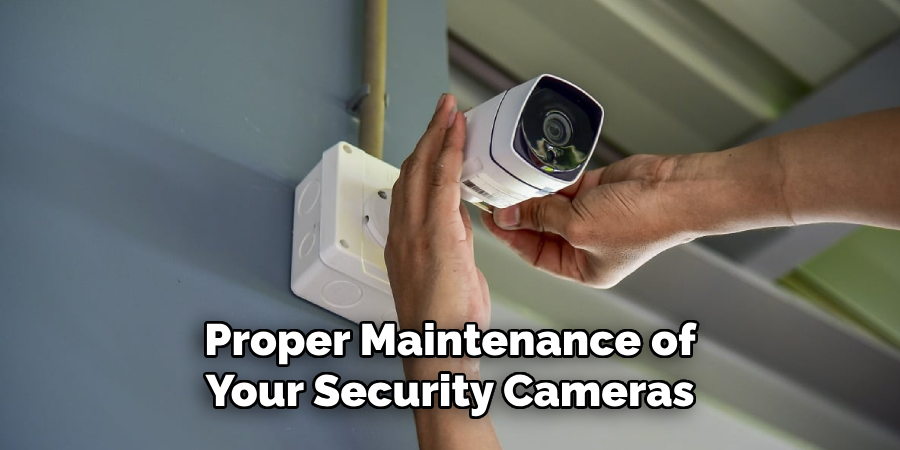
Step 7: Stay Up-to-date with Software Updates
In addition to hardware and physical protection measures, it’s also important to stay updated on software updates for your security cameras. These updates often include patches for potential vulnerabilities, so make sure to regularly check and install any available updates. You may also want to set up automatic updates for added convenience.
Step 8: Consider Additional Security Measures
In addition to protecting your cameras from lasers, you may also want to consider implementing other security measures such as alarms, motion sensors, and additional lighting. These can help deter potential criminals and further enhance the overall effectiveness of your home security system.
It’s always better to have multiple layers of protection in place. You can also consult with a security professional to determine the best combination of measures for your specific needs.
Step 9: Train Employees and Family Members
If you have security cameras in a workplace or shared living space, it’s important to train employees or family members on proper use and caution when it comes to laser protection. Make sure they understand the risks and potential consequences of laser attacks on your surveillance system. Otherwise, even one careless mistake could lead to significant damage.
Step 10: Keep an Eye Out for Suspicious Activity
Regularly monitoring your security cameras can help you identify any suspicious activity that may be targeting your system. Make sure to keep an eye out for any unusual or suspicious behavior near your cameras, and take immediate action if necessary. This could include contacting authorities or reviewing footage for potential evidence.
Step 11: Seek Professional Help
If you’re unsure about how to properly protect your security cameras from lasers, or if you’ve already experienced a laser attack on your system, it’s always best to seek professional help. A security expert can provide valuable insight and advice tailored to your specific needs and circumstances.
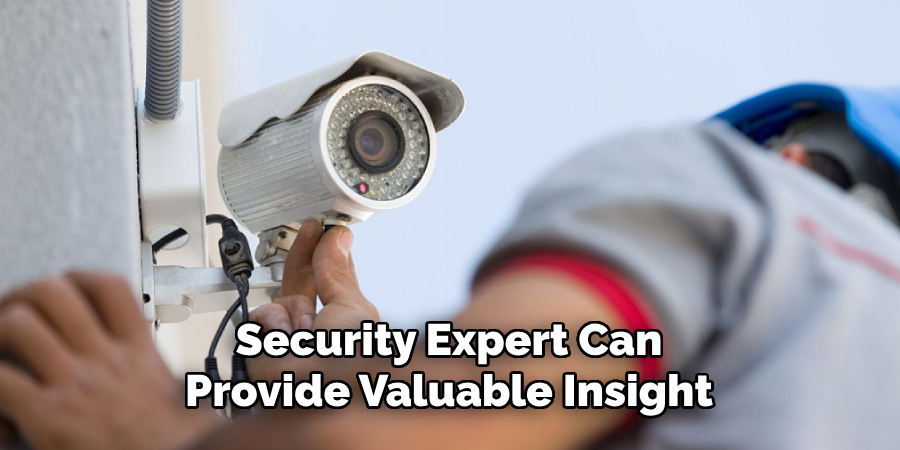
They may also be able to recommend advanced protection measures that you may not have considered before. Overall, protecting your security cameras from lasers requires careful consideration and implementation of various protective measures.
By following these steps on how to protect security cameras from lasers and staying vigilant, you can significantly reduce the risk of laser attacks on your surveillance system. So, take the necessary precautions to safeguard your security cameras and maintain a reliable and effective home or workplace security system.
How Much Will It Cost?
The cost of protecting your security cameras from lasers will vary depending on the specific measures you choose to implement. Light-filtering film, for example, can range from a few dollars to hundreds of dollars depending on the brand and size needed. Specialized coatings may also have varying costs and may need to be reapplied periodically.
For larger or more complex surveillance systems, professional assistance may also come at a higher cost but can provide more comprehensive and tailored protection solutions. Ultimately, the cost of protecting your security cameras from lasers should be weighed against the potential risks and consequences of not having adequate protection in place.
It’s always better to invest in prevention rather than dealing with the aftermath of a laser attack on your system. It’s also important to regularly reassess and update your protection measures as needed to ensure continued effectiveness. So, budget accordingly and prioritize the safety of your security cameras. Prevention is key to maintaining a secure and reliable surveillance system.
Frequently Asked Questions
Q1: Can Security Cameras Be Permanently Damaged by Laser Attacks?
A: Yes, depending on the strength of the laser and the vulnerability of the camera, a laser attack can permanently damage a security camera. This is why it’s important to take proper protective measures.
Q2: Are There Any Legal Consequences for Laser Attacks on Security Cameras?
A: Yes, laser attacks on security cameras are considered a form of vandalism and can result in legal consequences such as fines or imprisonment. It’s important to report any suspicious activity to authorities immediately.
Q3: Is Light-filtering Film Effective Against All Types of Lasers?
A: No, light-filtering film may not be effective against all types of lasers. It’s important to carefully research and purchase film specifically designed for laser protection and follow installation instructions for optimal results. Overall, it’s better to take multiple protective measures rather than relying solely on one method.
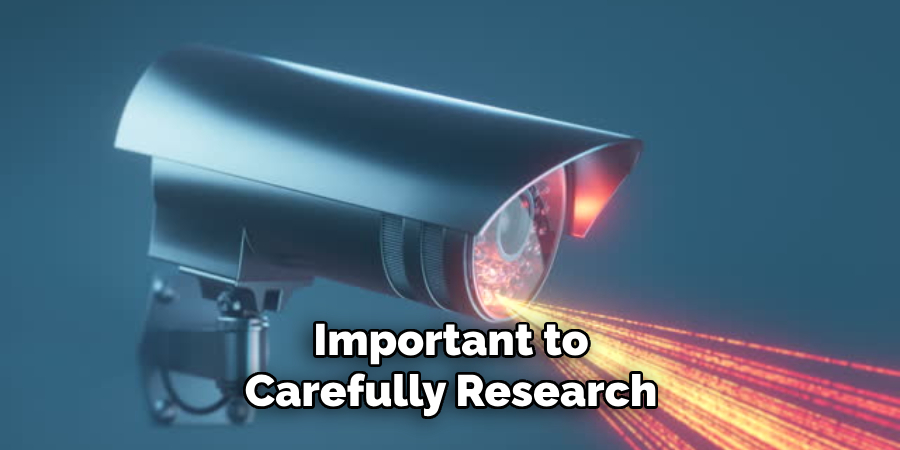
Q4: How Often Should I Check for Software Updates on My Security Cameras?
A: It’s recommended to check for software updates on your security cameras at least once a month, if not more frequently. You can also set up automatic updates for added convenience. Regularly updating your software can help prevent potential vulnerabilities from being exploited by hackers or laser attacks.
Conclusion
Overall, protecting your security cameras is a critical component of any surveillance system. With the right measures like laser detectors or infrared filters, you can ensure that your security footage stays safe and secure.
So take the necessary steps to prevent intrusions from lasers and protect your cameras for better security. Investing in the right equipment and following these strategies will increase the integrity of your security system.
Make sure to also keep up with technological advancements in this area – laser technologies grow more powerful each day, so staying ahead of the game is always important. Now it’s time for you to put these tips into action – make sure your security cameras are well-protected against unauthorized access! Thanks for reading this article on how to protect security cameras from lasers.
About
Safety Fic is a distinguished figure in the world of Diy design, with a decade of expertise creating innovative and sustainable Diy solutions. His professional focus lies in merging traditional craftsmanship with modern manufacturing techniques, fostering designs that are both practical and environmentally conscious. As the author of diy, Safety Fic delves into the art and science of Safety Fic-making, inspiring artisans and industry professionals alike.
Education RMIT University
(Melbourne, Australia) Associate Degree in Design (Safety Fic) Focus on sustainable design, industry-driven projects, and practical craftsmanship. Gained hands-on experience with traditional and digital manufacturing tools, such as CAD and CNC software.
Nottingham Trent University
(United Kingdom) Bachelor’s in diyfastly.com and Product Design (Honors) Specialized in product design with a focus on blending creativity with production techniques. Participated in industry projects, working with companies like John Lewis and Vitsoe to gain real-world insights.
Publications and Impact
In diy, Safety Fic his insights on indoor design processes, materials, and strategies for efficient production. His writing bridges the gap between artisan knowledge and modern industry needs, making it a must-read for both budding designers and seasoned professionals.
